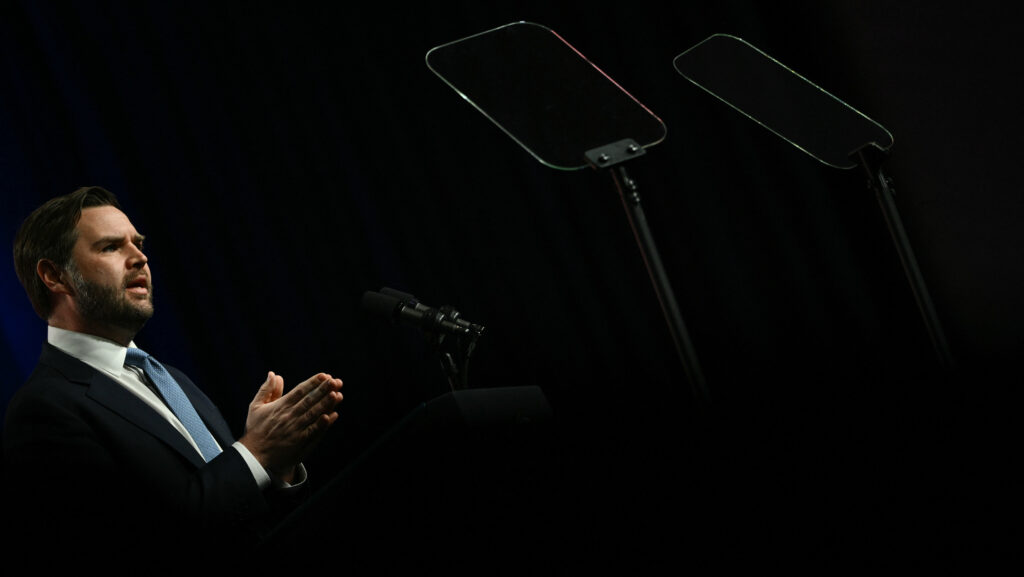Ralf Schuler, head of the parliamentary editorial team of German tabloid newspaper Bild recently resigned, accusing his publisher, Axel Springer of imposing ‘ideological uniformity’ on the publication’s staff.
Although Axel Springer has consistently claimed that it opposes ideologically subordinated thinking, when one looks at the company’s strategic decision-making, it becomes apparent that it has unmistakably sided with the rainbow movement, Mr. Schuler told Mandiner.
Principles
The previous editor of Bild explained that the principles of the editorial board are sound. He stated:
‘We support the right of the state of Israel to exist and are on the side of democracy and the transatlantic alliance. In accordance with these rules, we must also oppose prejudice against women. That’s totally OK. However, for some time now, it is not just that the rainbow flag is displayed on the front of the publisher’s headquarters, but, as part of the internal communication and treatment of the staff, an atmosphere has evolved that makes it basically an expectation that everyone “firmly stand on the side of the LMBTQ movement”, as the former chief editor of Bild has also said in a statement.’
Mr Schuler claims that the publishing company cultivates a culture where employees feel pressure to adhere to a particular philosophy. He added:
‘It’s difficult to tell how much of this is motivated by belief or is just a result of people falling in line’
‘Of course, none of this is carried out in the same manner as it would be under a totalitarian regime, like the one that once existed in East Germany (GDR), but I continue to notice the rainbow flag popping up in an increasing number of my colleagues’ social media profiles, along with their apparent delight in posting photos from the Pride parade. It’s difficult to tell how much of this is motivated by belief or is just a result of people falling in line. I am aware of the classic GDR phenomenon that makes people succumb to herd mentality as a result of preventive, overzealous humility. The Springer publishing house, however, has up until this point stood as a strong bastion against all collectivist impulses and movements.’
Journalism Cannot Be the Patron of Any Movement
The editor is of the opinion that journalism cannot act as the patron of any social movement, since it represents itself and rejects all forms of authoritarianism. Journalism is not intended to “firmly promote” any one social movement over another. He remarked that journalism always serves to investigate the root causes of events and, when necessary, to develop an opposing viewpoint, and he emphasized that all of this is common in the media.
‘The fad originated in America, where it is now widespread, particularly among creative professionals like performers, all kinds of artists, and journalists. Springer is one of the few outliers thus far. Even if fighting discrimination is a noble thing, the rainbow movement has evolved beyond that. For instance, the Springer Publishing House’s involvement in an LMBTQ employment fair was cancelled after an article warning about the spread of gender misinformation in the media that was written by a number of professionals and published in the daily Die Welt newspaper. This evokes a well-known climate from before 1989, when the authority would start applying pressure as soon as it observed certain behaviours that were deemed inappropriate, without even waiting for a political decision. They merely decided to cancel the impacted person’s attendance at the event. If anything similar occurs, the appropriate response should not be to blindly accept this ideology; rather, we should recognize this as an indication of authoritarian tendencies,’ he said.
LMBTQ
Additionally, Mr Schuler recalled that Marie-Luise Vollbrecht, a biologist, had recently planned to deliver a lecture at Berlin’s Humboldt University with the title ‘There are only two sexes in biology.’ Despite the fact that this is an undeniable biological fact, LMBTQ+ activists threatened the university with a massive protest when they learned about the lecture. As a result, the university – which is supposed to be a centre of knowledge and scientific debate – decided to cancel the event. Mr Schuler said he believed that was a worrying sign because nothing similar should ever occur in a liberal society.
In response to a query, Mr Schuler indicated that other from demanding that he fulfill the entirety of his notice period, Springer SE did not respond in any particular way to his resignation. He remarked:
‘They most likely did it so I wouldn’t be looking for work during that time. By the way, I’ve received a lot of support, which astonished me much because I didn’t anticipate becoming the focus of this media circus. I received a ton of supportive emails, texts, and phone calls, some of which were from prominent, active politicians and others who would never make such direct declarations in public. They appreciated that I spoke up for what I believed in. I was astounded by the volume and encouraging tone of the messages, which suggested, however, that my action was only an anomaly and that what we are seeing is a rising amount of spineless behavior.’
Judit Sevinc Basad, a female colleague at Bild, also departed in early June for the same reasons as him
Ralph Schuler noted that Judit Sevinc Basad, a female colleague at Bild, also departed in early June for the same reasons as him. An event at the Springer publishing company served as the basis for her resignation. Five scientists wrote an opinion piece for the daily Die Welt, also published by Springer, urging Germany’s public radio and television station to cease the unthinking spread of transgender ideology. The op-ed reacted, among other things, to an episode of Die Sendung mit der Maus, one of the most popular children’s shows in the country, designed for ages 4 to 9, suggested that a man can transform himself into a woman, and painted this possibility in a highly favourable light. Soon after the publishing of the article, chairman of the board of directors of Sringer, Matthias Döpfner publicly criticised the editorial board’s decision to publish the op-ed. Based found this so shocking that she decided to quit, Mr Schuler recalled.
The media expert emphasized that most public service programmes exhibit similar trends and tendencies. According to a recent survey, 94 per cent of the interns working for Germany’s public media, the future generation of journalists, support the green movement and leftist parties. If the aim is to produce balanced information, a one-sided movement in the opinion spectrum is not a good thing, according to Mr Schuler. Furthermore, while not having a responsibility to do so, public radio and television regularly use language aligned with gender ideology.
It is hard to comprehend for someone whose native tongue is Hungarian (where there are no grammatical genders) what it is like when German journalists try to render in speaking every single gender denoted with asterisks in a written speech. This results in awful stuttering and the mutilation of human language. Despite the fact that there are no formal linguistic regulations requiring this and surveys showing that more than 75 per cent of Germans disapprove of such indoctrinating speech, it is nonetheless done. However, this is simply ignored, and the obligation of the public media to provide public service is instead reduced to the requirement of disseminating a certain point of view, which Mr Schuler describes as extremely annoying.
Performers and artists also get in trouble when they express an opinion that doesn’t match the narrative, according to Mr Schuler. When Dieter Nuhr, a well-known German cabaret comic, had the guts to make jokes about Greta Thunberg, was subjected to a full-fledged online attack. In another instance, Mr Schuler recalled, popular anchor Barbara Schonberger’s remarks that it was silly for males to wear makeup sparked uproar as homosexual men attempted to characterize her remarks as overtly homophobic.
When asked about his future plans, Ralf Schuler replied: ‘I can choose from among various career choices, and at some point I will have to decide. Interestingly, after the commotion my resignation generated, I got a few fairly decent offers, so now I have even more options to consider.’








